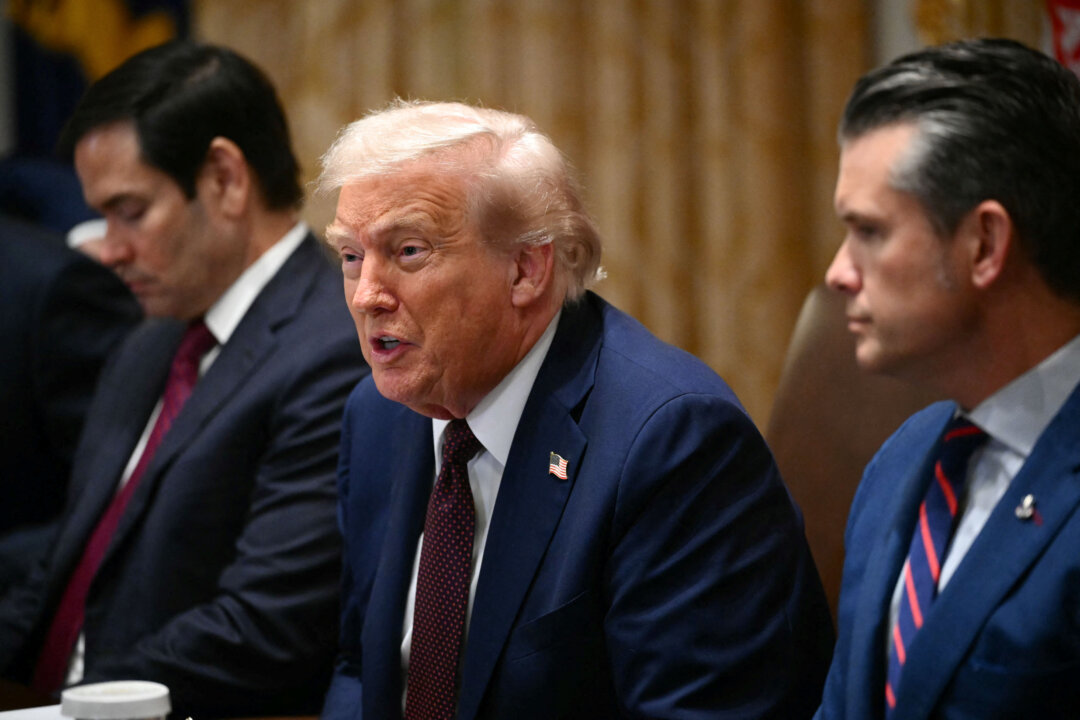The Federal Reserve is not a place that panics.
My experience of the central bank and its staff is that they try to think as many steps ahead as possible. Just as Fed policymakers weigh the balance of risks to the economy, and the many potential scenarios that may unfold, they similarly weigh the balance of political risks to their mandate and autonomy.
It’s an institution made up of regular people, of course — people who feel anxiety and frustration and anger and fear. But outwardly, every response is deeply calculated.
That is why they have tried to hold off, for as long as possible, a direct confrontation with President Donald Trump.
And it’s why even now, as Trump makes his most aggressive move yet to challenge the Fed’s political independence — his attempt to fire board member Lisa Cook — the institution‘s response is firm but not furious.
“Lisa Cook has indicated through her personal attorney that she will promptly challenge this action in court and seek a judicial decision that would confirm her ability to continue to fulfill her responsibilities as a Senate-confirmed member of the Board of Governors of the Federal Reserve System,” a Fed spokesperson said. “As always, the Federal Reserve will abide by any court decision.”
It’s a response that is characteristic of the Powell era: the subtlest, least controversial form of resistance.
Still, the heightened awareness among central bankers — not just here in the U.S., but also abroad — of Trump’s attacks on the Fed, and the potential ripple effects for the global economy, was palpable at the Fed conference in Jackson Hole late last week.
The audience there gave Fed Chair Jerome Powell a standing ovation before his speech, making clear that the support was for him personally, rather than simply being about his remarks.
The notion that monetary policy should be determined by interpretations of data, rather than what politicians say, is deeply baked into central bankers’ DNA (with history as a guide that keeping rates low when politics dictate has a tendency to lead to higher inflation — and ultimately higher rates).
And the decision to signal it will not automatically bend to Trump’s decree shows that the Fed is aware that the battle does not end here.
Trump has spent years across his first and second terms blasting Powell over interest rates while stopping short of formally moving against the central bank. Powell, in turn, has spent those same years mostly ignoring Trump’s criticisms.
That chapter snapped to a close Monday night with Trump’s assertion that he was firing board member Cook on the grounds that she “may have made false statements” on one or more mortgage applications. It’s unsettled whether those allegations are true.
In one sense, Trump’s move against Cook is seismic, an apparent declaration that he will not stop escalating his assault on the Fed until its policymakers come to heel and dramatically lower interest rates. But in another sense, it feels like just another temperature increase as Trump tries to boil the central bank frog.
Scott Alvarez, who served as the Fed’s general counsel for more than a decade, said the Trump-Cook clash presented a dilemma with swirling unknowns for the Fed.
“Do they walk out on an innocent person, or do they keep a guilty person?” Alvarez said. “They don’t want to be the one that decides that kind of thing.”
Fed board members can only be removed “for cause,” a murky legal phrasing that hasn’t been litigated but implies that there must be some sort of wrongdoing. Cook argues that Trump has no grounds to fire her, but we have also not received any formal rebuttal of the allegations from her yet.
The attack on Cook is clearly an incursion into the central bank as well (Trump noted Tuesday that he would soon have a majority on the Fed board). But there’s also a cascading set of questions: did she commit mortgage fraud? Would that be grounds for firing? Does it matter that the mortgage applications were filed before her time at the central bank? Should she participate in policy decisions while those matters are litigated?
In response, the Fed is treading carefully. In effect, Powell and his fellow officials are deferring the decision on whether to treat Cook as an ex-member of the board, pending advisement from a court.
Indeed, Cook’s initial response to the allegations — that she would not be “bullied” into resigning — felt uncharacteristically combative for the Fed, though it likely reflects the fact thatthis isn’t the first time Cook, the first Black woman to ever sit on the Fed board, has been put through the ringer in Washington; her initial confirmation process involved a bitter fight over matters of race and whether she was qualified for the office.
Now, her fate is inextricably tied to the future of both the Fed and the global economy. Markets are uneasily watching the outcome, uncertain whether this episode is enough to tip the scales to the point that the Fed begins weighing political outcomes over economic outcomes in its decisionmaking.
Many of the Fed’s allies have expressed deep existential dread in the wake of Trump’s effort to fire Cook. Even former Treasury Secretary Larry Summers, who never holds back criticisms of the Fed,called the targeted investigation into Cook “chilling.”
The circumstances of this case are specific enough that the court decision could leave many questions unanswered about the ongoing legal relationship between the president and the Fed.
But the central bank’s long game will only get harder: Trump’s efforts to subjugate the Fed are far from over.
I asked White House adviser Peter Navarro on Friday whether Trump really planned to try to fire Cook. Navarro declined to speak for the president but said “she should do more than just resign” if she committed a crime and referred to her as “anti-Trump.” When I pointed out that she’d staked out relatively moderate positions on financial regulation, Navarro returned the conversation to the fact that the Fed had not lowered interest rates in July.
“Two Fed governors dissented from the chair’s position,” he said, implicitly complimenting Christopher Waller and Michelle Bowman. “Neither of them was Lisa Cook. It’s the interest rates that matter.”
.png)












 English (US)
English (US)